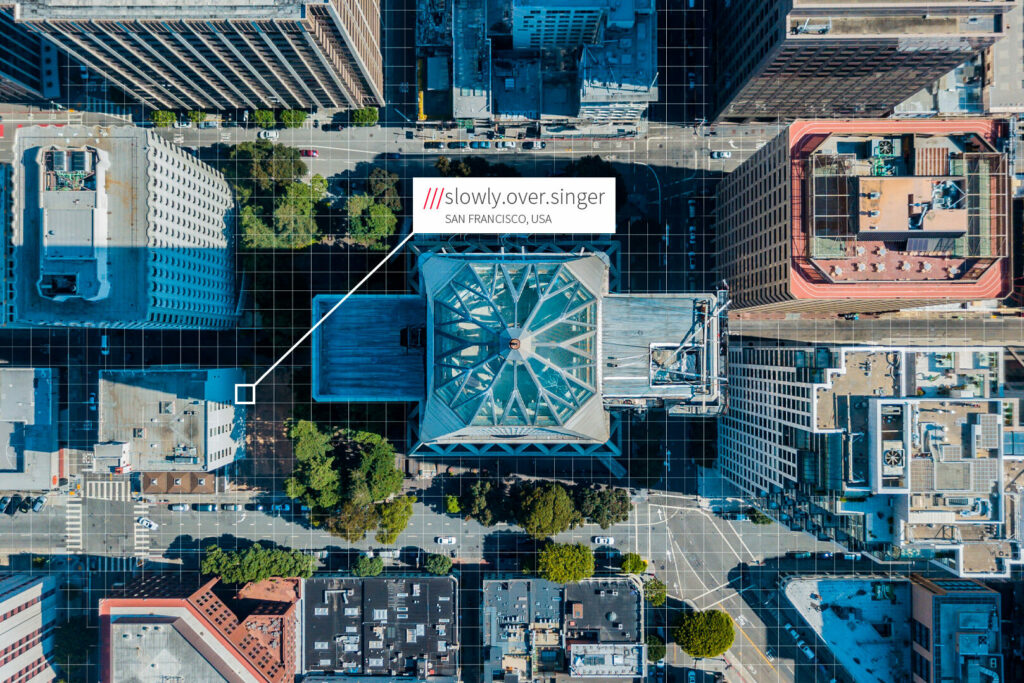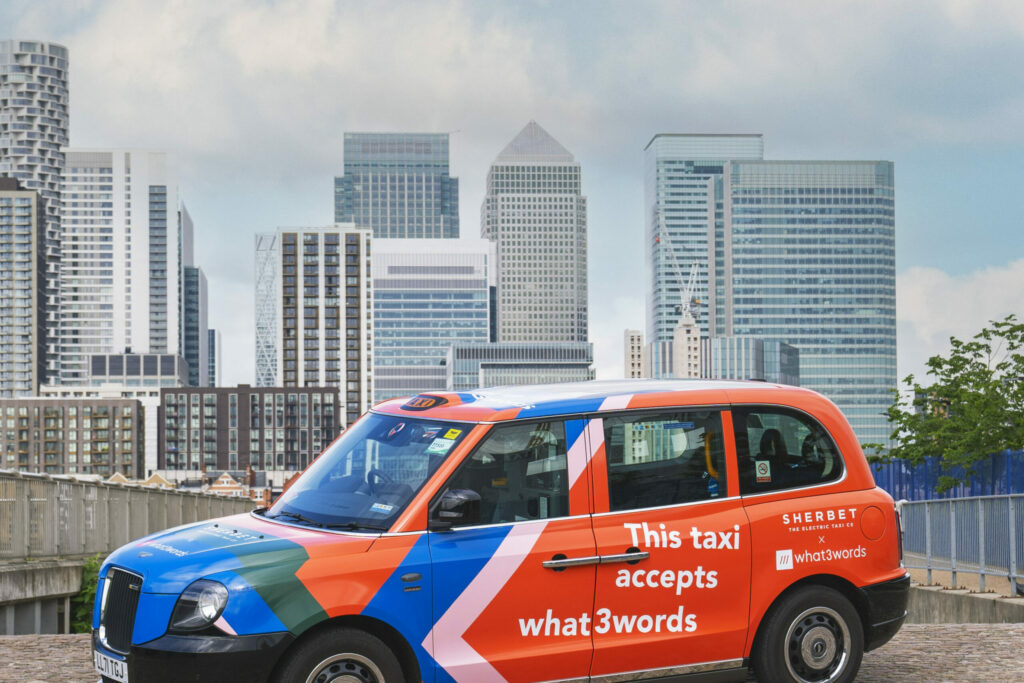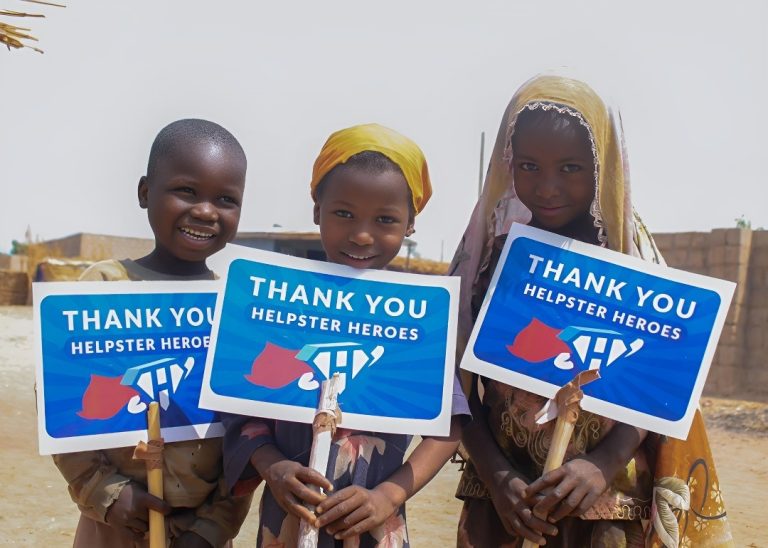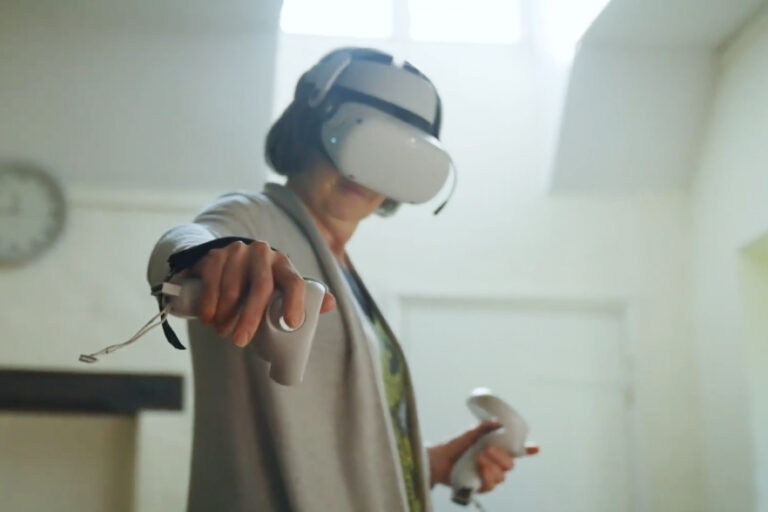
Chris Sheldrick worked in the music industry and had trouble getting his bands and equipment to the correct location for gigs. He never imagined that the solution he would develop would go on to change – and save – lives.
Almost a decade later and that is exactly what has happened with the creation of what3words. By mapping the world with three-metre-square boxes and an algorithm, the company allows individuals and organisations alike to navigate the planet with nothing more than three randomly generated words. Now expanded into 53 languages and multiple sectors, what3words is hoping to proliferate even further.

Lightbulb moment
Giles Rhys Jones, Chief Marketing Officer at what3words, recalls: “Chris was constantly frustrated with poor addressing. If he was trying to find gate 27C at the NEC arena in Birmingham, or he was trying to find a remote chateau in northern France, simple street addressing wasn’t accurate enough.
“He tried using GPS coordinates, latitude-longitude, which are brilliantly accurate and cover the world. But it turned out drummers and roadies are not predisposed to remembering or writing down all those numbered coordinates. Speaking with a friend, they asked: ‘well what happens if we use words instead? How many words would you need?’”
They worked out that if the world was cut into three-metre squares, it would divide into 57 trillion pieces. With roughly 40,000 words in the English language, combinations of three words per square would cover the globe. The algorithm was written; rude words were carefully removed, along with hyphenated words and homophones, while complicated words were shuffled to less populated places such as oceans. The earliest version of what3words was born.
”We want to make the world less frustrating, more efficient, and safer.”
The next challenge in the formative journey was whether similar sounding words should be close to one another. It was decided that if a user was to make a slight error when sharing their what3words location, it needed to be immediately obvious it was incorrect rather than having nearby squares similarly named.
“As a result, table/chair/lamp is in Australia and table/chair/damp is in USA. That way, if I accidentally tell you the wrong one and you’re in New York, you will be thinking: ‘hey I think you mean this one’,” comments Rhys Jones.
Multi-use expansion
Nowadays, what3words covers languages from Urdu and Malayan to Russian and Chinese, and is a truly global organisation with a free app that anybody can use. But as for revenue streams, income is generated through selling the what3words code to other companies. Commercial partners include Subaru, Mercedes-Benz, ITV, Lonely Planet, Cabify and Transport for London, among others. Having in-built car systems integrated with what3words is a particularly innovative way to help people navigate with ease, and is an area of growth for the company.
Rhys Jones adds: “If you are a delivery company, we can save you quite a lot of money by getting you to the front door. Because if you’re doing an extra 20, 30 or 40 yards on 500 deliveries a day, and you’ve got a considerable thousands-strong workforce, that’s a lot of inefficiency. So, we sell our code to delivery companies, we sell our code to car companies, and it means you can get into a Mercedes Benz and say ‘hey Mercedes take me to apple/banana/spoon’, and the car system understands and navigates to the precise location.
“Because otherwise, if I want to tell the navigation system to take me to Church Road, it will say there’s 14 different Church Roads in London. Then I must pull over, check the postcode, and it can be a bit disastrous. With what3words, it takes you to exactly where you need to go.”
Even though there is a clear use case for making businesses and car travel more efficient, recently what3words has also been gaining popularity in a whole new sphere – emergency services. It doesn’t take long to unearth stories of times what3words has been directly responsible for saving lives: a biker saved by rescue services after tumbling down a steep embankment half a mile away from the nearest road; two men being plucked from the sea after jumping into a harbour to save their dog. Such is the convenience of using what3words to accurately locate people and incidents, it is now estimated to be integrated into the dispatch systems of more than 85 percent of emergency services in the UK.
NGOs and charities have also been using the app to locate aid stations, find people in floods or other disaster zones, and give people identifiable addresses in refugee camps.
“Basically, we want to become a globally accepted way of talking about location,”
Future proliferation
Looking forward, Rhys Jones wants the company to reach a ubiquitous level when it comes to everyday navigation, wherever the user may be. In the UK, the company feels it has put in the hard yards, built an ecosystem, and is reaching a tipping point of achieving critical mass. It now wants to replicate that success in other key markets such as USA, Germany and India.
With that aim of ubiquity comes the challenge of focus, and the company’s need to balance commercial and free-use applications across the vast array of sectors in which the app is used. Ultimately, what3words wants members of the public to see three random words alongside the company’s three red slashes on a building and instantly know what it means.
“Basically, we want to become a globally accepted way of talking about location,” he says.
“Yes, we do have to be careful we don’t tip too far onto one side as we are a commercial business that has a huge humanitarian benefit, but we’re managing well so far. The car industry is particularly interesting for us because we have recently signed our 13th partnership with an automotive related company. We already have the likes of Mitsubishi, Tata Motors in India, and Triumph Motorcycles to go alongside the likes of Mercedes-Benz and Suburu, so that’s proved very fruitful for us because we solve a real-world challenge for them.
“Logistics and delivery companies are another big focus for the company because it’s also a big efficiency play. People will get increasing exposure to what3words in their day jobs in the future and will then hopefully discover how helpful the app can be and genuinely think ‘hey, this is great’. In a nutshell, we want to make the world less frustrating, more efficient, and safer.”
A huge variety of use cases fit those three aims. What3words wants to make life less frustrating for pedestrians and car drivers, more efficient for delivery firms, and safer for emergency services and NGOs and the people they serve. From installing water pumps in Botswana to delivering a pizza in Boston – the same app benefits so many different facets of life.
“Our team have a passion for the business, doing good, and seeing our system being used for good.”
The vision is there, now it is up to Rhys Jones and his team to continue getting the message out there about what3words and continue redefining the way we treat navigation and location. He explains: “Some people might be used to always doing it a certain way, where they think street addresses or a long-winded description is good enough; come to the third house with the red door past where the old mango tree used to be – that kind of thing. Maybe it’s hard for them to see what’s wrong with that because they know where it is, but the other person trying to get there has trouble.
“That’s where we come in, and we want to permeate into that situation where it’s second nature for someone to use what3words.
“We’ve got there in the UK where your housemate is using it, your boss is using it, people are aware of it. We want to expand the what3words usefulness even further now, with more languages, more integrations with cars, and continue that journey.”
“Our team have a passion for the business, doing good, and seeing our system being used for good. We’ve got a Slack channel where we post all the emergency service stories. So, it’s always pretty humbling to scroll through that channel and just see the life-changing uses. It’s incredibly motivating for everybody.”



